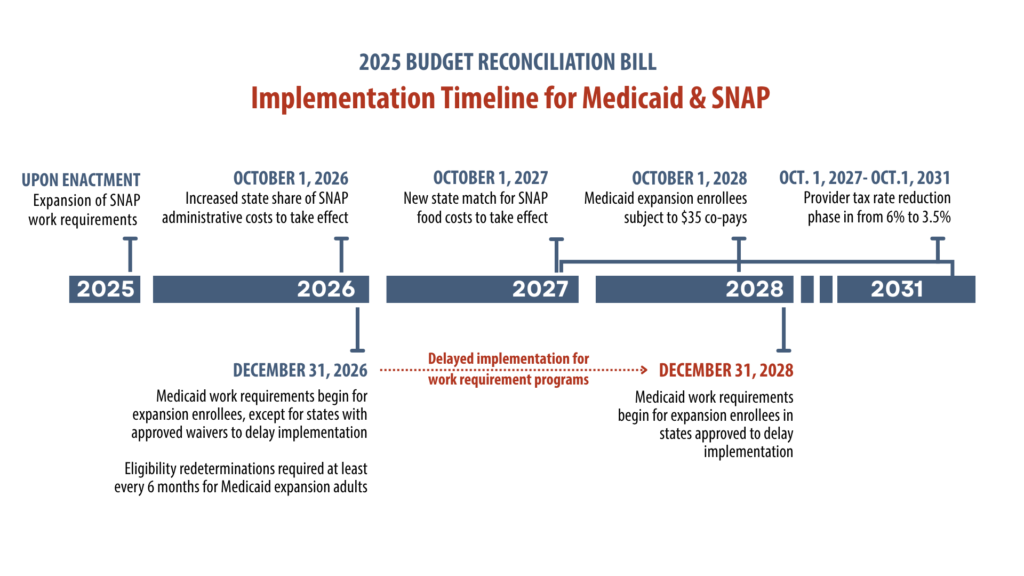Medicaid (called MO HealthNet in Missouri) and the Supplemental Nutrition Assistance Program (SNAP) help keep Missourians and their families healthy and fed, so they can work, succeed in school, and contribute to their communities.
But recently passed provisions included in the final budget reconciliation bill (OBBB) amount to the largest cuts to Medicaid and SNAP in history and would take health coverage and food assistance away from Missourians, shift costs to states, and make life harder for families struggling to make ends meet.
An estimated 170,000 Missourians are expected to lose Medicaid and at least 58,000 Missourians are at risk of losing food assistance, with hundreds of thousands more at risk of additional cuts to health care, food assistance, or other critical services.
The bulk of these cuts come from creating new barriers and red tape for both Medicaid and SNAP that will overwhelm state systems and cause eligible Missourians to lose health insurance and food assistance.
Work Requirements. The bill implements work requirements in Medicaid for Medicaid Expansion enrollees and expands SNAP work requirements to older adults ages 55-64 and parents with children aged 14 and older.
Increased Renewals. Medicaid expansion enrollees are now required to renew coverage every six months as opposed to annually.
New Copayments. The bill requires $35 copayments for health care visits for Medicaid Expansion enrollees. The copayments are likely to be unaffordable for many in the expansion category who have low incomes, creating a barrier to accessing needed care and preventive services.”
The bill also shifts significant costs to the state at a time that Missouri is already facing a significant budget shortfall – forcing deep cuts to health care and food assistance, or other state services like K-12 education.
SNAP Cost Share. Missouri will be required to pay up to 15% of the total cost of benefits depending on the payment error rate, in addition to an increased share of administrative costs.
This means Missouri will need to pay for an additional $180 to $254 million dollars to keep SNAP benefits at current levels.
Provider Taxes. The bill will also cap Missouri’s use of provider taxes, a key funding mechanism for Missouri’s Medicaid program. In Missouri, the provision reducing allowable state provider taxes would cost an estimated $675 million per year when fully in effect. When combined with federal funds, it would reduce funding available for Medicaid by $1.9 billion per year if Missouri is unable to replace lost provider tax revenue with other state revenue.


